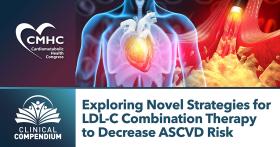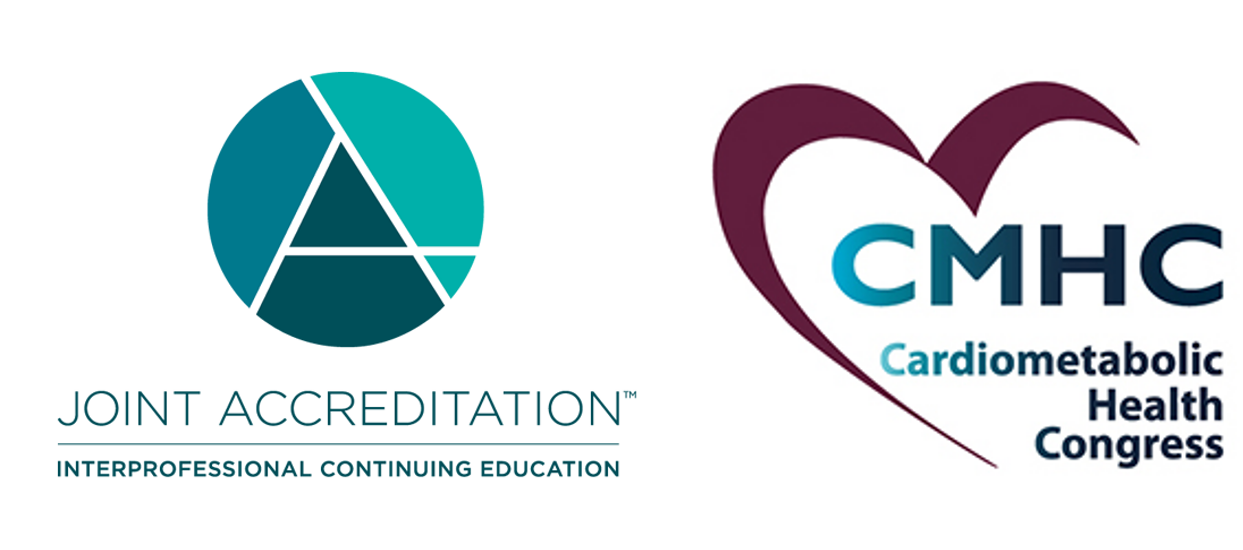
Exploring Novel Strategies for LDL-C Combination Therapy to Decrease ASCVD Risk: A Paradigm Shift
Effectively and safely lowering LDL-C is essential to prevent and reduce the risk of recurrent ASCVD events. Despite advancements in LDL-C lowering therapies, achieving LDL-C targets remains suboptimal due to clinical inertia and patient non-adherence, contributing to patient's residual ASCVD risk. The landscape of LDL-C lowering therapies is rapidly evolving, with several new and emerging agents that may help bridge these gaps. In this activity, experts overview the efficacy and safety of these new approaches, how they fit in with the current treatment options for LDL-C lowering, and application to patient care. The information is presented in an easy and digestible format, chapterized into an interactive, online compendium accompanied by additional resources and suggested readings.
Target Audience
The educational design of this activity addresses the needs of US-based healthcare professionals, including cardiologists, endocrinologists, lipidologists, primary care clinicians (PCPs), registered nurses, advanced practice registered nurses, dieticians, pharmacists, and other allied health professionals involved in the management and treatment of cardiometabolic patients.
Learning Objectives
After completing this activity, the participant should be better able to:
- Identify patients with statin intolerance who may benefit from non-statin therapies.
- Recognize the need for the early and adequate intensification of LDL-C lowering therapy beyond statins to address ASCVD risk.
- Review the benefit of newer treatment options for LDL-C lowering that can help increase patient adherence to therapy.
- Select individualized treatment strategies for LDL-C lowering that prioritize the early initiation and intensification of therapy to reduce ASCVD risk according to current guidelines and evidence.
Additional Information
| Attachment | Size |
|---|---|
| 8.93 MB | |
| 380.35 KB | |
| 141.23 KB |

Christie M. Ballantyne, MD
Center for Cardiometabolic Disease Prevention
Baylor College of Medicine
Houston, TX

Pamela B. Morris, MD, FACC, FAHA, FASPC, FNLA
Professor of Medicine, Cardiology
Paul V. Kramer Chair of Cardiovascular Disease Prevention
Director, Seinsheimer Cardiovascular Health Program
The Medical University of South Carolina
Charleston, SC

Pam R. Taub, MD, FACC
Founder and Director of Step Family Cardiac Rehabilitation and Wellness Center
Professor of Medicine
UC San Diego Health System
San Diego, CA
ESTIMATED TIME TO COMPLETE ACTIVITY
1.5 hours
EDUCATIONAL GRANT SUPPORT
Supported by an educational grant from Novartis Pharmaceuticals Corporation.
JOINT PROVIDERSHIP STATEMENT
In support of improving patient care, this activity has been planned and implemented by Partners for Advancing Clinical Education (PACE) and Cardiometabolic Health Congress (CMHC). PACE is jointly accredited by the Accreditation Council for Continuing Medical Education (ACCME), the Accreditation Council for Pharmacy Education (ACPE), and the American Nurses Credentialing Center (ANCC), to provide continuing education for the healthcare team.
PHYSICIAN CONTINUING EDUCATION
PACE designates this enduring material for a maximum of 1.5 AMA PRA Category 1 Credits™. Physicians should claim only the credit commensurate with the extent of their participation in the activity.
NURSING CONTINUING EDUCATION
The maximum number of hours awarded for this Continuing Nursing Education activity is 1.5 contact hours. Pharmacotherapy contact hours for Advance Practice Registered Nurses will be designated on your certificate.
PHARMACY CONTINUING EDUCATION
PACE designates this continuing education activity for 1.5 contact hours (0.15 CEUs) of the Accreditation Council for Pharmacy Education.
Universal Activity Number - JA4008073-9999-24-121-H01-P. Type of activity: Application
For Pharmacists: Upon completing the post-test and the activity evaluation form, transcript information will be sent to the NABP CPE Monitor Service within 4 – 6 weeks.
DIETITIAN CONTINUING EDUCATION
This program offers 1.5 CPEUs for dietitians.
METHOD OF PARTICIPATION & REQUEST FOR CREDIT
There are no registration fees for this activity. Participation in this self-study activity should be completed in approximately 1.5 hour(s). To successfully complete this activity and receive CE credit, learners must follow these steps during the period from May 24, 2024 through May 24, 2025.
- Review the objectives and disclosures
- Study the educational content
- Successfully complete activity post-test(s)
- Complete the activity evaluation
You must receive a test score of at least 75% and respond to all evaluation questions to receive a certificate. Upon completing, your certificate will be available for print. For questions about receiving certificates, please contact us at [email protected]. For additional information about the accreditation of this activity, please visit https://partnersed.com
For Pharmacists: Please complete the evaluation instructions above. Upon registering and completing the activity evaluation, your transcript information will be sent to the NABP CPE Monitor Service within 4-6 weeks.
DISCLOSURES
PACE requires every individual in a position to control educational content to disclose all financial relationships with ineligible companies that have occurred within the past 24 months. Ineligible companies are organizations whose primary business is producing, marketing, selling, re-selling, or distributing healthcare products used by or on patients.
All relevant financial relationships for anyone with the ability to control the content of this educational activity are listed below and have been mitigated according to PACE policies. Others involved in the planning of this activity have no relevant financial relationships.
Dr. Ballantyne, faculty for this educational activity, discloses the following:
- Grant/Research Support- All significant. (All paid to institution, not individual): Abbott Diagnostic, Akcea, Amgen, Arrowhead, Esperion, Ionis, Merck, New Amsterdam, Novartis, Novo Nordisk, Regeneron, Roche Diagnostic, NIH, AHA, ADA
- Consultant- 89Bio, Abbott Diagnostics, Alnylam Pharmaceuticals, Althera, Amarin, Amgen, Arrowhead, Astra Zeneca, Denka Seiken*, Esperion, Genentech, Gilead, Illumina, Ionis, Matinas BioPharma Inc, Merck, New Amsterdam*, Novartis, Novo Nordisk, Pfizer, Regeneron, Roche Diagnostic
Dr. Morris, faculty for this educational activity, discloses the following:
- Researcher: Esperion
Dr. Taub, faculty for this educational activity, discloses the following:
- Consultant, Advisor, Speaker: Amgen, Bayer, Boehringer Ingelheim, Novartis, Novo Nordisk, Medtronic, Edwards, Jazz Pharma, Sanofi, Merck
DISCLOSURE OF UNLABELED USE
This educational activity may contain discussion of published and/or investigational uses of agents that are not indicated by the FDA. The planners of this activity do not recommend the use of any agent outside of the labeled indications. The opinions expressed in the educational activity are those of the faculty and do not necessarily represent the views of the planners. Please refer to the official prescribing information for each product for discussion of approved indications, contraindications, and warnings.
DISCLAIMER
Participants have an implied responsibility to use the newly acquired information to enhance patient outcomes and their own professional development. The information presented in this activity is not meant to serve as a guideline for patient management. Any procedures, medications, or other courses of diagnosis or treatment discussed or suggested in this activity should not be used by clinicians without evaluation of their patient’s conditions and possible contraindications and/or dangers in use, review of any applicable manufacturer’s product information, and comparison with recommendations of other authorities.
Available Credit
- 1.50 ACPE Pharmacy
- 1.50 AMA PRA Category 1 Credit™
- 1.50 ANCC
- 1.50 CDE
- 1.50 Participation
Required Hardware/software
A computer with an internet connection
Internet Browser: Internet Explorer 7.x or higher, Firefox 4.x or higher, Safari 2.x or higher, or any other W3C standards compliant browser
Other additional software may be required such as PowerPoint or Adobe Acrobat Reader.

 Facebook
Facebook X
X LinkedIn
LinkedIn Forward
Forward